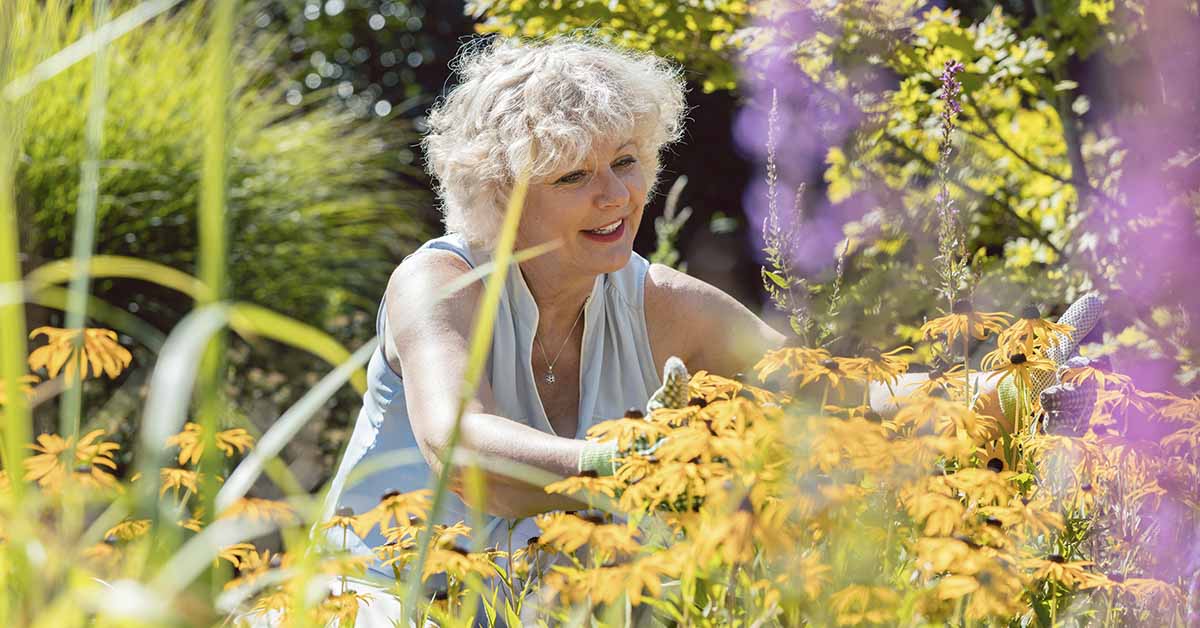In 2004, Dan Buettner coined the term “blue zones” as he explored the world looking for the secrets of longevity. The National Geographic Explorer and journalist, along with a team of scientists and demographers, set out on a mission to find communities with people who enjoy long, high-quality lives. These areas became known as blue zones, and the researchers found that they all followed nine important lifestyle habits. Now, many people focus on the diet aspect of these habits, but food is only one piece of the puzzle. One often overlooked detail is long-living people’s hobbies, which include gardening.
The Habits of People in the Blue Zones
The nine lifestyle habits found in blue zones are as follows:
- Moving naturally
- Having a sense of purpose
- Engaging in stress-reducing rituals
- Eating until they are 80% full
- Eating more protein from plants than animals
- Drinking alcohol moderately but regularly
- Belonging to a faith-based community
- Prioritizing family
- Creating strong social networks [1]
Gardening falls under habit one. “Moving naturally” means that these people take up hobbies and routines that make them exercise without thinking about it. They tend to avoid “unnatural movement” like marathons or gym equipment. For instance, they do many chores manually instead of relying on technological advances. And this includes gardening and growing their own food well into their old age.
Research has discovered a lot about multi-faceted benefits of gardening. First, as already mentioned, it’s a form of exercise. “If you garden, you’re getting some low-intensity physical activity most days, and you tend to work routinely,” says Buettner. [2]
Gardening can involve different kinds of activity, such as lifting full watering cans, squatting and stretching to prune and weed, tilling the soil, and picking produce. “Working in the garden restores dexterity and strength, and the aerobic exercise involved can easily use the same number of calories as might be expended in a gym,” according to Richard Thompson, a researcher at London’s Royal College of Physicians.
Buettner adds that evidence shows that gardeners tend to live longer and feel less stressed, pointing to the mental health boost of the hobby. For one thing, exercise reduces stress. But gardening also forces you to plan, problem-solve, and most of all, be present. It can help slow racing thoughts and relax the mind, a good way to recover after a gard day. Some mindfulness experts consider gardening a form of moving meditation.
Read: 10 Tips for Growing Avocado in a Pot and for it to bear fruit
The Benefits of Nature
This hobby also forces people to go into nature, another habit shown to have positive effects on mental health, especially when it involves interacting with the surroundings like with bird-watching or collecting rocks. In a famous study from the 80s, environmental researcher Roger lrich says nature is restorative because “we have a kind of biologically prepared disposition to respond favorably to nature because we evolved in nature. It was good to us, and we tend to respond positively to environments that were favorable to us.” [3]
And unlike hiking or walking in nature, you can’t blow off gardening since the plants will suffer from neglect and ruin your previous hard work. This hobby forces you to consistently explore nature and enjoy sunlight and fresh air. It also contributes to the blue zone habit of having a purpose because the plants depend on you. Additionally, it can encourage social connection, another important tenant, as people in blue zones meet at markets and share their produce.
Speaking of seeing the outcome of your hard work, many people in the blue zones grow their own fruits and vegetables. Not only does this encourage them to eat the easily available produce, but they’ll eat more of it because freshly picked food tastes better. It’s also extremely satisfying to directly benefit after putting in hours upon hours of effort.
Anyone can Start Gardening
“As a scientist, I’m skeptical of really extravagant claims,” said Don Rakow, professor of horticulture at Cornell University’s School of Integrative Plant Science in Ithaca, N.Y. “But the evidence is so strong at this point, after so many studies, that we have confirmed that time in nature, including gardening, is absolutely beneficial to us in a number of ways.” [4]
But you don’t need a big yard to reap the benefits of gardening. Herbs, potted plants, and even some potted vegetables like tomatoes can grow from sunny windowsills or balconies. You also don’t need a lot of experience to begin. Many hardy plants are easy to care for. Ask questions when you visit your local plant nursery or gardening store. The experts there can help guide you to the best plants based on your home, routine, and skill set. It may seem daunting to take up gardening but don’t let that discourage you. You’ll learn and improve the more you practice. Just do your best to take care of the plants and they will take care of you.
Keep Reading: Apetina: The Lawn Replacement You’ve Been Looking for (+11 Other Useful Groundcovers)
Sources
- “Power 9.” Blue Zones. Dan Buettner.
- “Gardening could be the hobby that helps you live to 100.” BBC. Jamie Feldmar. December 10, 2018
- “The world’s longest-living people share this hobby—why studies say it can help add years to your life.” CNBC. Minda Zetlin. July 29, 2020
- “How gardening may extend your life and make it better.” LA Times. Jeanette Marantos. September 1, 2022

